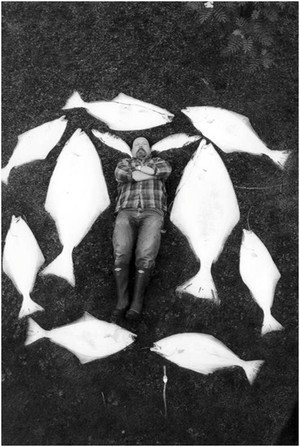POM_By_Lance_Young
Do you have any thoughts on this post?

Lawrence Nieroda submitted this photo of his brother Joe after a fishing trip in Kodiak, Alaska.
Submit your photos on the TRCP Facebook page.

“Conservation is a luxury we simply can’t afford.” This is what sportsmen and women were told in 2011 as the House of Representatives passed a budget that eliminated or eviscerated almost every major conservation program, from wetlands conservation and public lands management funding to the Open Fields program that encourages landowners to open their lands to public hunting and fishing.
Finally, anti-conservation members of Congress had their excuse to attack programs that they had never liked, programs they believe thwart the full development of our natural resources. A slew of “riders” unrelated to the budget proved that this was more about ideology than deficit reduction.
But faced with giving up a century of conservation progress, hunters and anglers came together and reached out to the outdoor recreation and historic preservation communities to make the case that conservation is not a luxury; it is fundamental to what makes America great and it provides jobs. The coalition, called America’s Voice for Conservation, Recreation and Preservation, now boasts more than 1,200 groups, including many of our partners.
It released a comprehensive economic study that showed hunting and fishing, other outdoor recreation, and historic preservation support 9.4 million American jobs, result in $1.06 trillion in annual economic impact and generate $107 billion annually in tax revenue. And these are jobs that cannot be exported.
It’s also important to note that conservation did not create the budget deficit and it cannot solve the problem. As a percentage of federal spending, conservation has decreased from about 2.5 percent in the 1970 to about 1.26 percent today.
You could eliminate every conservation program and barely make a dent in the deficit. Moreover, as everyone who has ever worked on a local conservation project knows, every dollar of federal funds is leveraged several times over by state and private funds and volunteer labor.
I am pleased to report that common sense finally ruled the day and the Senate reinstated about $1.8 billion in conservation funds in the final budget agreement. But the House is now poised to repeat history by passing a bill almost identical to its 2011 disaster.
Once again it is time for sportsmen and women of all stripes to speak up for what Theodore Roosevelt called the common man’s birthright.
Here at the TRCP, our mission is simple. In order to guarantee all Americans quality places to hunt and fish, we strengthen laws, policies and practices affecting fish and wildlife conservation by leading partnerships that influence decision makers.

We want to see your photos! Post them on the TRCP Facebook page or e-mail them toinfo@trcp.org for your chance to be featured!
From now until January 1, 2025, every donation you make will be matched by a TRCP Board member up to $500,000 to sustain TRCP’s work that promotes wildlife habitat, our sporting traditions, and hunter & angler access. Together, dollar for dollar, stride for stride, we can all step into the arena of conservation.
Learn More
